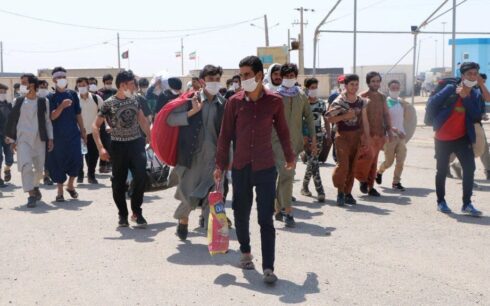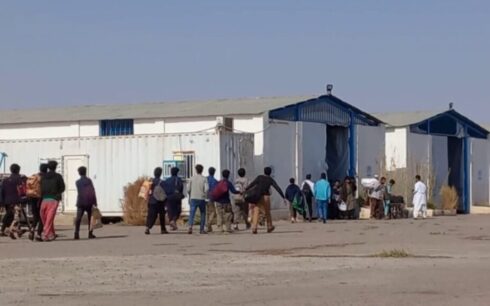The United Nations said on Friday it will continue to keep Afghan staff working from home after the Taliban began enforcing a ban on Afghan women working for the world body a month ago.
The United Nations has some 3,300 Afghan staff – of which about 400 are female – while about 600 international staff in the country are not affected by the ban. It had said it would review its operations and keep Afghan staff home until May 5.
Deputy UN spokesperson Farhan Haq said on Friday that there has been no change to “our posture on the ground.”
“We’re working to come to decisions on appropriate working modalities,” Haq told reporters in New York. “Obviously, we have a challenge because the needs of the Afghan people are immense, and we intend to fulfill those needs, but at the same time, our operations are clearly impeded.”
“The United Nations Assistance Mission in Afghanistan reiterates its commitment to stay and deliver on behalf of the men, women and children of Afghanistan and appeals to our donors to keep funding the assistance people need. To achieve this efficiently and effectively, the U.N. needs all its personnel, women and men, to work in communities and U.N. offices unimpeded. I know you’ve asked repeatedly about our staff situation, given the restrictions on women in Afghanistan. For now, we can only say that UN entities on the ground in Afghanistan continue to discuss appropriate working modalities. Meanwhile, humanitarian operations continue to be undertaken,” he added.
The Afghan people are in for a “very difficult year ahead,” the top U.S. aid official warned this week, as donors grapple with challenging a Taliban administration crackdown on women and girls, more crises around the world and overall less funding.
Haq said aid work continued in areas like health and education where the UN had been able to get some limited exemptions to the ban on Afgan women. However, he also indicated that some UN agencies may be taking a different approach.
“I believe that different agencies have different mandates about the provision of aid and so they have had different ways of handling the situation as I characterized it,” Haq said.
Taliban has said that the ban on women aid workers is an “internal matter” and that it will not affect other countries.
The UN Special Rapporteur for Afghanistan, Richard Bennett, and the chair of the Working Group on Discrimination against Women and Girls – both mandated by the UN Human Rights Council visited Afghanistan between April 27 ad May 4.
“We are deeply concerned about the apparent perpetration in Afghanistan of gender persecution – a systematic and grave human rights violation and a crime against humanity,” they said in a joint statement on Friday.
On Tuesday, UN chief Antonio Guterres said that the United Nations will stay in Afghanistan to deliver aid to millions of desperate Afghans despite the Taliban’s restrictions on its female staff, but funding is drying up.
Guterres said concerns over the country’s stability were growing.




